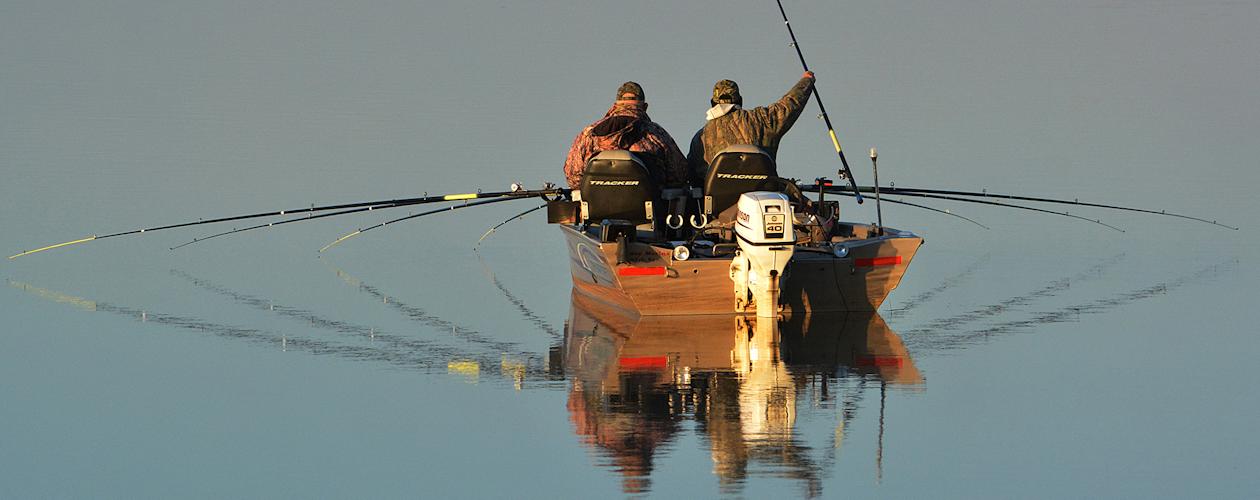Lake Levels Slowly Recede as TVA Drawdown Begins; Catfish Bite Improves
Written by Steve McCadams - Published on July 5, 2023
Temperatures may be rising but lake levels are slowly receding on Kentucky Lake as the annual drawdown by Tennessee Valley Authority begins.
Lake levels last week were around the 359.3 range but this week have fallen to the 358.9 range. Tennessee Valley Authority is pushing about 38,000 cubic feet per second (cfs) through Kentucky Dam on a daily basis.
The slow drawdown should keep plenty of current along the main Tennessee River channel in the days and weeks ahead, which is good news for catfishermen stalking the deep river channel banks.
Each year the slow but steady decrease in elevation begins in early July as the agency implements its winter drawdown, a systematic decline in lake levels in order to create more storage capacity. By winter and somethere around late November and early December the reservoir will stabilize around its winter pool low ebb of 354.
For the next few months fishermen and recreationalists across the reservoir will see a little more shoreline beginning to expose sandy, gravel banks. After Labor Day some backwater bays and primitive launch areas will become too shallow, which changes the whole fishing and recreational scene out there.
Meanwhile, still ample water for boating and recreation for most folks at least through Labor Day.
Surface temperatures are in the 83 to 86 degree range. Water color remains clear.
Catfishermen have been doing pretty good as the bite has increased along main lake venues since the current has increased. Several fish have been taken in the 25 to 30 foot depth range.
Catfish anglers in the region are still talking about the recent catch and pending state record for a blue catfish taken recently by angler Micka Burkhart. He was fishing the Cumberland River in Stewart County when he landed the lunker that tipped the scales at 122.3 pounds!
The huge fish measured 57.5 inches in length sporting a girth measuring 42.25 inches. He was using only 40-pound test line to land the river monster.
Burkhart is no stranger to big cats as he caught one last year that weighed 118 pounds! Some crappie fishermen working deep brushpiles and main lake ledges have been tying into catfish on a regular basis. As they tight line minnows or jigs around deep structure the crappie and catfish are sharing some of those deep spots where baitfish are moving through.
Nightcrawlers continue to be the bait of choice among the ranks of anglers but chicken livers, cut bait, leeches and some assorted commercial stink baits have worked too. It’s high time catalpa worms were showing up on the big green trees but seems that last few years they’ve become scarce. They are an excellent bait for catfish.
Crappie anglers have been rising early and hitting the lake just after daylight to avoid the midday heat. Some decent stringers have been taken but most fishermen say they’ve had to move around a lot to find fish playing their game.
Structure in the 14 to 16 foot depth range had paid dividends with some occasional fish taken from 12 to 14 foot zones. Live minnows seem to be producing best as of late.
Bass fishermen tossing big deep diving crankbaits are scoring decent stringers as they target main lake ledges. Others are casting big Texas rigged worms in the 9 to 11-inch size range.
Caroline rigged worms always seemed to be part of the summer bass angler’s arsenal as well. Swim baits and jig and craw combos are other popular choices and sometimes even a big spoon.
Still attracting bass to shallow weeds, treelaps and steep banks are mayfly hatches that have been underway since mid-June. In addition to aggressive bass feeding on the flies have been a host of sunfish competing for mother nature’s buffet.
Mayfly hatches will continue throughout the summer but July usually sees a few more hatches than does August or September.
< Return to the Archives
< Return to Fishing Reports
< Return to Fishing Overview








